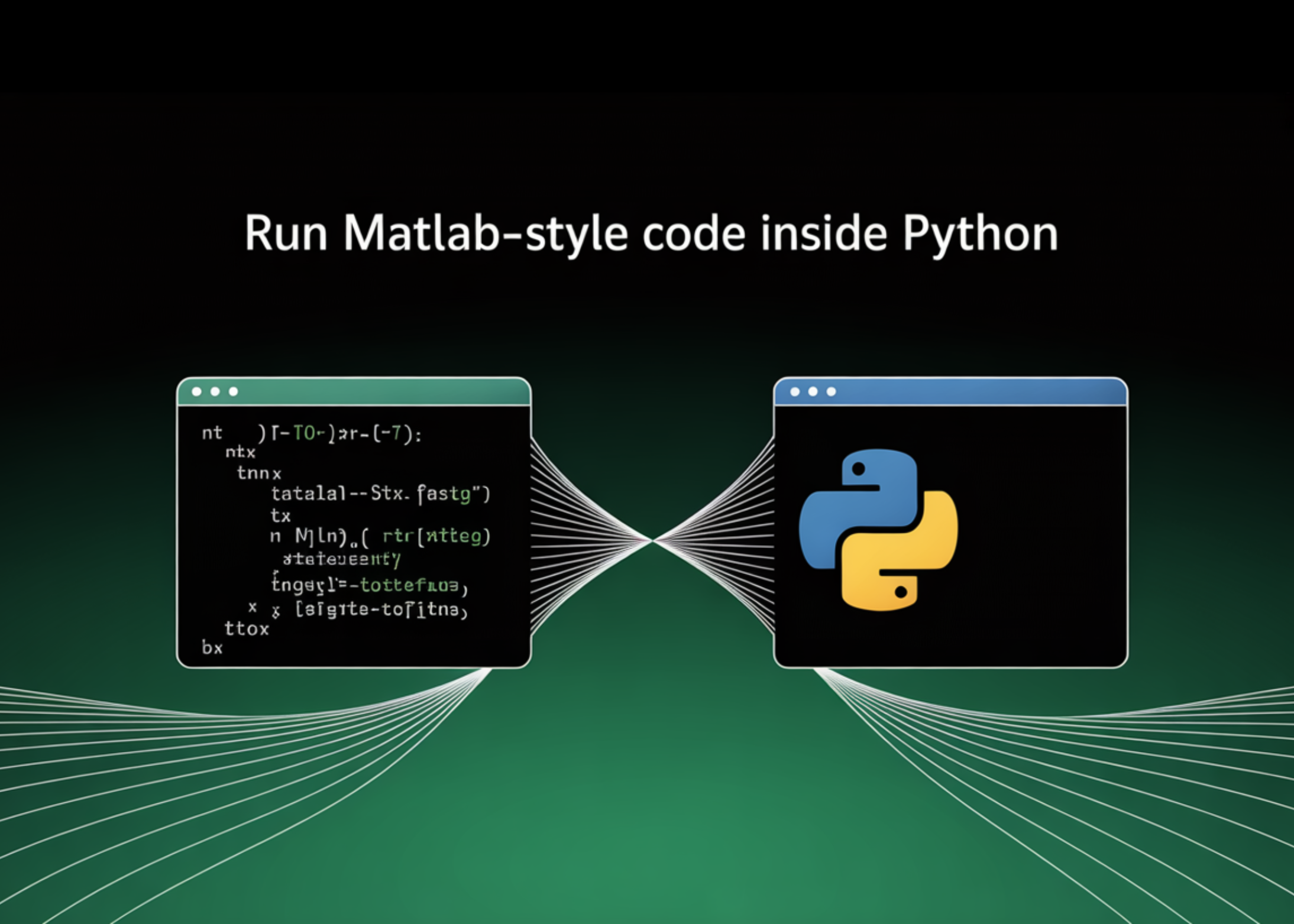
Unlocking MATLAB's Power: Integrating Octave with Python Using oct2py
In a groundbreaking tutorial presented by Asif Razzaq, readers are guided on how to seamlessly run MATLAB-style code within Python by utilizing the oct2py library. This innovative approach allows developers and data scientists to harness the strengths of both programming environments, enabling a more versatile coding experience.
Setting Up the Environment
The tutorial outlines the process of setting up an environment on Google Colab. Users will learn how to:
- Install necessary libraries including Octave and its dependencies.
- Exchange data between NumPy and Octave seamlessly.
- Write and call .m files directly from Python.
- Visualize plots generated in Octave within the Python ecosystem.
Leveraging MATLAB/Octave Syntax
This integration not only offers the flexibility of Python's extensive library ecosystem but also allows users to maintain the familiar syntax used in MATLAB and Octave. This is particularly beneficial for professionals who are accustomed to MATLAB's numerical capabilities but wish to utilize Python's broader functionalities.
Key Advantages
By connecting Octave with Python, users can:
- Utilize advanced mathematical functions and toolboxes available in Octave.
- Work with data structures such as structs and .mat files.
- Enhance data visualization and analysis capabilities.
The tutorial emphasizes the practical steps needed to get started, including code snippets for initial setup and function definitions. By following these guidelines, users can efficiently transition between the two platforms and maximize their programming efficiency.
This resource is ideal for software engineers, data scientists, and tech enthusiasts looking to expand their programming toolkit and streamline their workflow.
Rocket Commentary
The tutorial by Asif Razzaq on integrating MATLAB-style code within Python through the oct2py library reflects a significant step toward bridging the gap between two powerful programming environments. This convergence not only enhances workflow efficiency for developers and data scientists but also democratizes access to advanced data manipulation techniques. However, as we celebrate this innovation, we must remain vigilant about the ethical implications of such integrations. With the increasing complexity of tools available, ensuring that users are equipped with the necessary skills to navigate and leverage these technologies responsibly is paramount. This integration represents a transformative opportunity for industries reliant on data analysis, but it should also serve as a reminder of the importance of fostering an inclusive and ethical tech landscape. By prioritizing accessibility and education alongside innovation, we can truly harness the potential of AI-driven solutions while mitigating risks associated with misuse and misunderstanding.
Read the Original Article
This summary was created from the original article. Click below to read the full story from the source.
Read Original Article